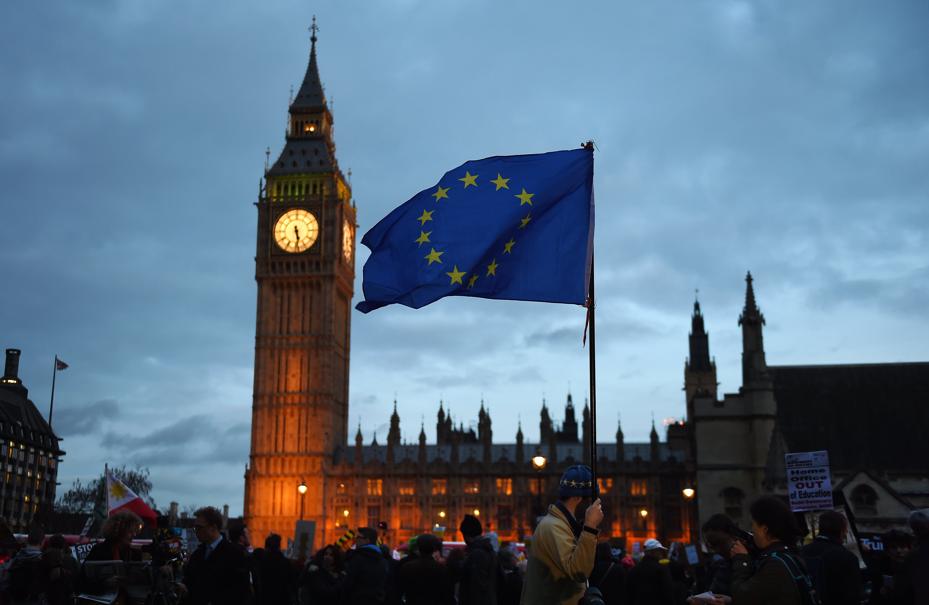
LONDON — With thousands of people demonstrating against President Trump outside Parliament, British lawmakers debated Monday whether to deny him a formal state visit because, in the eyes of nearly 2 million Britons in an online petition, it would “cause embarrassment to Her Majesty the queen.’’
The debate was a chance for the kind of political showmanship and heated language for which British members of Parliament are well-known.
Paul Flynn, an opposition Labor lawmaker, led the argument against a state visit, citing the need to keep public trust in politicians and noting no president had been invited for a state visit in his first year in office.
Flynn also accused Trump of acting “like a petulant child’’ and said the queen should not be seen to be approving either his actions or his attitudes toward women and Muslims.
But a Conservative legislator, Nigel Evans, said Trump was the president of a great ally of Britain and the critics should “get over it.’’ Trump was fairly elected, he said, adding, “I do respect that he stood on a platform on which he is now delivering.’’
The petition, backed by 1.8 million people, does not call for Trump to be barred from Britain but only that his visit be a political one, without involvement of Queen Elizabeth II.
Any vote by lawmakers would not be binding on the government of Prime Minister Theresa May, which has said the invitation to Trump for a full state visit this year will not be withdrawn.
Also on Monday, the House of Lords began at least two days of debate on a bill, passed by the House of Commons, to authorize the government to enact a provision of the Lisbon Treaty, which would inform the European Union of Britain’s intention to leave the bloc after voters chose to do so in the June referendum.
The government intends to invoke the provision by the end of March, beginning at least two years of negotiations with the other 27 member states.



